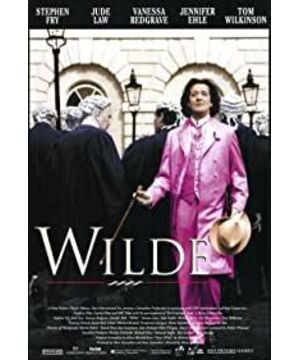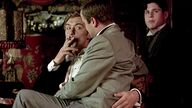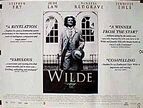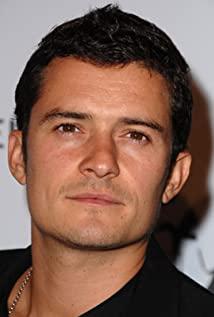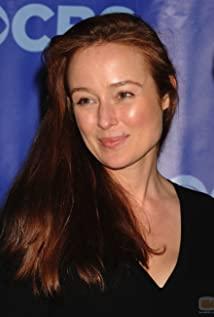—This is a clip from the biographical film Wilde that I just watched a while ago.
The boy in the film who was as beautiful as Narcissus was named Alfred. Douglas, or Percy.
And the person in his eyes is the world-famous Oscar Wilde.
There is always a certain degree of convergence with people you just met, and Percy is no different. At that time, Posey, with the genetic characteristics of family violence and extremeness, hid the flaws of his character, often holding Wilde's arm, in a very depressed and gentle tone, to this man who was sixteen years older and taller than himself. A man close to the head tells of the family's misfortune. And Wilde, who was wearing a white suit, only lightly hugged his shoulders as comfort. They passed through a quiet boulevard. If the boulevard was endless, if they kept walking in such an inseparable platonic manner, then what happened in the future—including the frequent quarrels, accusations, break-ups, imprisonment— - Maybe it won't happen. I don't know when Wilde was imprisoned for being "indecent", when for months he tore the discarded hemp rope into strands of hemp scriptures that cracked his nails, or pointlessly ripped his fingernails apart. When the stone moved from one place to another, do you still remember that two years ago, a flowery boy sang "He loves me he is here" to him, and the boy's eyes flickered like flickering candles Uncertain, like the deepest spring.
Wilde was too fascinated with Percy, or maybe not in Percy, but in the scent of ancient Greece in him, those fragrant fragrances that he could only get through books before. He once said after an argument, Bossy, don't lose your temper with me, I can't stand it taking away the charm of life, I can't stand seeing your ancient Greek grace twisted by anger, I can't stand it Endure hearing your graceful lips spit out hateful words at me, don't do it, you break my heart.
Jude Law, who played Percy in the film, was twenty-five years old at the time. This British lover is as good as the historical Lord Douglas in both appearance and temperament. Besides him, I don't know who else can get infinitely close to Percy, the narcissistic boy who made Wilde unable to stop and eventually led his art and life to double destruction. He performed Posey's grace, sorrow, nobility, willfulness, and domineering, but he was a bit more wild and frivolous than the historical Posey.
In the film, Percy and Wilde's first meeting coincided with the successful performance of Lady Windermere's Fan. The Irish green peacock, who once proudly claimed to be undeclared other than genius, is walking through the lavishly lit hall, receiving amazement and praise from people. Posey is different from those who are very attentive. He does not appear in person, but only asks his cousin to tell Wilde that he wants to know him - Wilde looks up, and the camera slowly advances at this moment, slowly transitioning from close-up to close-up of the face , Wilde's originally scattered eyes suddenly became a little surprised, and his brows were slightly frowned. In the next shot, Percy appears in a black evening gown. He stands out for his deliberately blurred backgrounds and the occasional blurry silhouettes that flash across the camera. There was no expression on his delicate, indifferent face. The camera moved forward slowly, shooting at a slight elevation angle. At this time, Posey also slowly raised his chin with the camera, showing a provocative look. When Wilde came to him, he suddenly leaned slightly, stared into Wilde's eyes and said, I like your drama, you grab the audience, especially your speech, the more rude you appear, the more like. When the boy speaks, his mouth is deliberately exaggerated, and he looks around from time to time, but his expression is always confident and smug. In contrast, Wilde, who has always been known for his rhetoric, pales in comparison.
Wilde is a well-made biographical film (whether it's because Wilde's descendants are still alive). Although director Brian. Gilbert added a lot of subjective feelings in it, the plot is still based on historical facts, and many lines come from Wilde's biography. So this film, like Mel. Gibson's "The Passion of the Christ", is exquisite, but without any surprises.
In comparison, Phillip. Kaufman has much more freedom in Quills, and in this biopic featuring the French novelist Sade as the main character, respect for historical facts is no longer important. Importantly, Sade became a symbol, a symbol of liberty, rebellion, and martyrdom.
The morning after watching "Wilde" I fell into an unprecedented long insomnia, and the scene of Wilde in prison came back and forth in my mind. The detainees wore face masks every morning under the watch of prison guards, and walked in circles in the open space downstairs, a scene reflected in a long-range shot. Shooting from the outside in through the solid iron gate, it seems like a pair of eyes are silently penetrating everything. The air is as bleak and cold as the hue. The next shot cuts to close-up people, people circle one after the other, their faces tightly covered by masks. Even so, Wilde can be easily identified from it, because he is the most burly and tall one. The camera showed his staggering footsteps, and then the camera stopped, and he slowly moved away, leaving only a lonely back. What follows is a series of technical montage shots, overprints, transitions, empty shots, and background monologues for the famous "From the Deep". His tone was like stagnant water, unable to be rippled by the wind. This monologue made me start imagining the imprisoned and tortured genius more than 100 years ago, perhaps far more devastated than what is told in the movie. He did not open London, because he did not want to violate the great and inviolable aestheticism and ancient Greek complex in his heart. He said, I think it is more noble and beautiful to stay, I don't want to be called a fugitive or a coward, pretending, pretending, running away, that's not what I want.
Everything about him, including his behavior, language and even clothing, was ahead of its time. He knew very well what kind of bad luck all this would bring to him, but he was unwilling to change. This is a kind of perseverance, but also a kind of inertia and obedience - the domination of one's own heart. I don't know if he will be afraid when the power of the outside world puts the existence of the kingdom of his heart in jeopardy, whether it is really like what he wrote to him, the cage of the prison is just testing the power of love, to see if I can make the bitter water change. Cheng Ganlin - with my deep love for you. Or maybe, his kingdom of mind is strong from beginning to end, whether he is the genius who played with London in the palm of his hand, or the prisoner in Reading Prison, he is always the king of his kingdom of mind. . Outside the prison, outside the kingdom, his Darling boy, Lily of lily, still lives a luxurious life of day and night.
The Platonic beauty that had held them together was gone the moment Wilde stood in the dock.
Distance may be the most beautiful thing in the world, because it can keep defects, feelings, hurts and even sins out.
This truth may have been understood by Wilde in prison, or he may have understood it long ago, but as the king who dominates the mind, he cannot restrain himself.
After two years in prison, Wilde's sharpness and edges were worn away, although his friends described him as "as noble and dignified as a king returning from exile". One of the most impressive scenes in the film is that Wilde, after being released from prison, had lunch with his ex-lover Robbie after worshipping his deceased wife. During this time, Wilde constantly measured the distance between the table and the plate with a fork, then carefully placed the fork and knife in the middle of the plate, then picked up the red wine and moved slightly left and right to find a suitable placement— — This is what he did over and over again during his two years in prison. Perhaps he couldn't bear to look anymore, Robbie stretched out his hand, lightly covered the back of Wilde's hand, and gently stopped him. The camera moves up, Wilde looks down, I decide to see Percy again, I have nothing, I lost my wife and children, no one wants to watch the stage play I write - he subconsciously arranges his knives and forks again , The extreme lack of self-confidence made him different from the former Wilde who walked in the luxuriously lit hall, smiling and elegantly listening to people's praise for him. Apart from Robbie, he really has nothing left. Robbie was the first to bring Wilde into a double life, and the only Boy to love Wilde from beginning to end. He never left, he was always on his left, on his right, everywhere. And in the face of Robbie's love, Wilde just said, I'm grown up and won't go back.
Wilde loves only Percy, his Darling boy, Lily of lily. And Robbie is just one of his many Boys. It was also Robbie, one of Wilde's many boys, who accompanied him when he was sick, took off his hat when he was spurned by everyone, helped him take care of his family and children while he was in prison, and took him out of prison, Tell his two children "your father is not a bad person"... And Wilde's Darling boy, Lily of lily, finally broke with Wilde three months after that meeting and became his little Lord Douglas, And spent his life trying to come to terms with his past.
Without this historical fact, the film's ending would have been perfect: they reunited in the square. Wilde hid behind the pillar and watched Percy from a distance, and Percy showed a pure and bright smile after discovering Wilde, and shouted happily, "Oscar!" as if nothing had happened. At this time, the face of a generation of aesthetic masters had a somewhat flattered look, the shrunken body trembled slightly, and took off his hat... Then we couldn't see the two sensational faces of the long-awaited reunion, and the camera was just a bird's-eye view The panorama of the square, they are in the lower left corner of the camera, hugging each other deeply - they are just part of a busy and lively party, they are just a pair of ordinary lovers.
Ah, leave me not to pine ,Alone and desolate;
No fate seemed fair as mine, No happiness so great!
And Nature, day by day, Has sung in accents clear
This joyous roundelay,
He loves me – he is here. Fal, la, la, la, Fal, la, la, la.
He loves me – he is here. Fal, la, la, la, Fal, la, la, la.
Percy fully inherited his father's character after middle age and became a violent man. Crowded resentment gradually ruined his appearance. After seeing a few photos of him in his old age, I can't help feeling that time passes by so quickly. It was really a face that everyone who had seen his youthful face couldn't bear to see it a second time. I don't know if Wilde, who has always been beautiful all his life, sees Percy in his old age, will he still love him recklessly as he did back then. I don't think so. Because Wilde was so afraid of ugliness and old age, he didn't even allow ragged beggars to play the violin under his apartment. In his eyes, even if you are poor, you should be beautiful and dignified - "I know you and will always remember you. At that time, you were very young, and everyone said you were beautiful. Now, I'm here to tell you, yes For me, I think you are more beautiful now than you were when you were young, and I love your devastated face more than your face back then." - This affectionate confession can never be taken from Wilde's mouth say.
The first memory of Wilde comes from The Happy Prince. Later, due to the professional course, I came into contact with his play "Salome" - it is worth mentioning that "Salome" is Wilde's last symbolist tragedy written in French and written by Alfred Douglas. Lord translated into English. As Wilde said, I have a tool that I know quite well and can use, and that is English writing. But there is another language, which I have listened to for a lifetime, and now I will try this new tool to see if I can make something beautiful... Of course, it has to contain a lot of styles that the French literati don't use, but I The script can instead get a strange color.
Wilde died in a foreign country three years after his release from prison at the age of forty-six. From my point of view, if a male writer has only words and no appearance, he will only be respected by female readers, and only a male writer with both talent and beauty will be admired by female readers. Both Yeats and Wilde belonged to the latter. Their appearance satisfies to a great extent the fantasies that female readers have about them because of the text itself. To this day, there are still a large number of women from all over the world who come to Wilde's tomb, cherish the memory of this talented and beautiful genius for a long time, and deliberately apply heavy lipstick in order to leave a deep kiss on the tomb. When the lip print is covered with the tombstone, the staff will wipe it off bit by bit, and before long, there will still be hickeys like lush vines climbing freely - one author wrote, It should be a good road for a beautiful man. Although this road is a little cruel, it is quite beautiful, quite sad, and not terrifying.
Yeats was still very handsome in his later years. I like the picture of him on the title page of Writer's Press "Vision: Vision". He looks like such a decent old man, with gray hair and a linen suit. His eyes are darker than those of his youth. more handsome. And Wilde, he began to gain weight after middle age, and he was even more haggard after being released from prison, so the death of middle age is the most perfect ending for this aesthete.
I like him who wore velvet silk and his hair as a boy because of his aestheticism, and he who wore breeches and capes and hats when he lectured in the United States;
I liked the gaudy decoration of his monotonous Oxford dormitory Incomparably, he said to his friends, "I find that it is getting harder and harder to live worthy of my blue-and-white porcelain." He also likes him who thinks that "a person is either like a work of art or wears a work of art". ;
I like the one who said "I have nothing to declare except my genius" when going through customs, and the one who pinned a pale green dianthus flower on his white suit.
Forget the fat, bloated man who played him in Wilde.
But please remember him.
His full name is Oscar Fingal Ofrahty Willis Wilde.
View more about Wilde reviews


